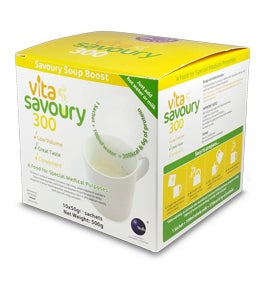Liver Disease
What is Liver Disease?
The liver is the largest organ in the body and plays an essential role in the metabolism of protein, carbohydrates and fat. People who suffer with liver disease are often required to follow a special diet in order to stay nutritionally well and to manage their condition1.
Who it affects:
Liver disease is currently the 3rd largest cause of premature death in the UK and may become the number one killer within one generation2. Liver disease morbidity and mortality are largely preventable however, the UK is one of few developed nations with an upward trend in mortality3. Approximately 29 million people in the European Union suffer from a chronic liver condition4.
Symptoms:
There are many types of liver disease and dietary management will depend on the type of disease present and how advanced the disease is. Patients with liver disease are vulnerable to developing malnutrition which is a known complication5; symptoms can include loss of appetite, nausea, low energy levels, fluid retention in the legs or accumulation of fluid in the abdomen (ascites).
Diet and Nutrition:
Eating a balanced diet to maintain a healthy weight is essential as good nutrition helps
support liver function6. If the patient becomes malnourished, it is important to eat regular
meals and snacks with reduced periods of fasting to prevent undernutrition 7.
1. Hamlin S, Leaper J. Manual of Dietetic Practice. In: Gandy J, editor. Liver and biliary disease.
Fifth edition ed: John Wiley & Sons; 2014. p. 474.
2. Hebditch V. The Silent Killer: Liver Disease Aware. . NHD Magazine June, 2016.:9‐12. .
3. Sheron N. A time to act: Improving liver health and outcomes in liver disease. UK: British
Association for the Study of the Liver (BASL) & British Society of Gastroenterology (BSG);
2009.
4. Blachier M, Leleu H, Peck‐Radosavljevic M, Valla D‐C, Roudot‐Thoraval F. The burden of liver
disease in Europe: a review of available epidemiological data. Journal of hepatology.
2013;58(3):593‐608.
5. Purnak T, Yilmaz Y. Liver disease and malnutrition. Best practice & research Clinical
gastroenterology. 2013;27(4):619‐29.
6. O'Brien A, Williams R. Nutrition in end‐stage liver disease: principles and practice. Gastroenterology. 2008;134(6):1729‐40.
7. Vidas N, McAnenny C. Autoimmune hepatitis and viral hepatitis. In: Miranda L, editor.
Advanced Nutrition and Dietetics in Gastroenterology. Chichester: John Wiley & Sons; 2014.
p. 287.
8. British Liver Trust. About the Liver 2016 [cited 2016 31 May]. Available from:
http://www.britishlivertrust.org.uk/liver-information/
Product information
Read more about malnutrition in the following areas

The content you are trying to access is intended
for Healthcare Professionals only.
Are you a healthcare professional?
You will be redirected.
You will be redirected.






